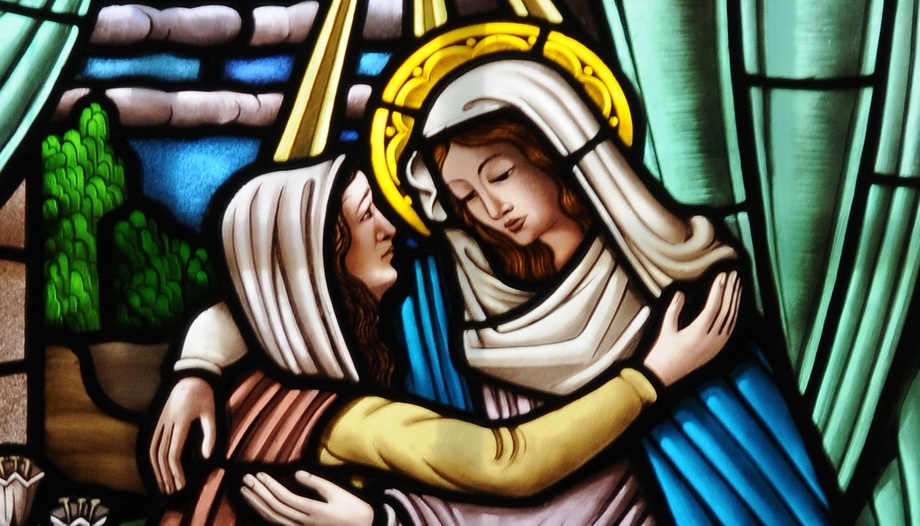It is precisely this joy motivated by the closeness of the Lord that is also reflected in the corresponding collect prayer:
O God, who contemplate how faithfully your people await the feast of the birth of the Lord, grant us to rejoice in so great an event of salvation and to celebrate it always with solemnity and overflowing joy.
Deus, qui cónspicis pópulum tuum nativitátis domínicae festivitátem fidéliter exspectáre, presta, quaésumus, ut valeámus ad tantae salútis gáudia perveníre, et ea votis sollémnibus semper laetítita celebráre.
Again, those in charge of the liturgical reform saw fit to move the old prayer in use to another day and find one that better reflected the essence of this Sunday. With minor modifications we now use this prayer, which comes from the Ravenna Ritual (8th century).
In its structure we find a brief invocation (Deus), the anamnesis that refers to the approaching Christmas and a subordinate clause that introduces an epiclesis with two petitions.
Waiting, arriving and celebrating
The abundant use of verbs in this sentence is interesting. On the one hand, the verbs with personal forms present us with two subjects: God and his people. God is the one who contemplates (conspicis) always with paternal and benevolent love for his pilgrim people. We, as his people, turn to him full of filial trust to ask him (quaésumus) your help, so that we can (valeámus) to attain the goods of salvation that he has destined for us. This is the dynamism of the whole Christian life.
On the other hand, the three verbs that appear in the infinitive give us a good idea of the attitudes with which the Church situates herself in this liturgical season.
First, there is the wait (exspectáre): a look ahead with hope, towards the Birth of the Savior. Undoubtedly, this awakens a powerful desire in the Christian and this desire originates in him, in her, the movement of wanting to reach (perveníre) that marvelous horizon that God unfolds before the eyes of faith. And, of course, arriving will become a celebration (celebrate), with that double nuance that it has: of celebration, logically, but also of liturgical action, therefore, of real and effective participation in the salvific mystery.
Joy and solemnity
The last mentioned action, celebrating the Birth of the Lord, is accompanied by two characteristics that give it a particular tone: joy (laetítia) and solemnity (votis sollémnibus).
Joy is the specific characteristic of this third Sunday of the month. Advent. A particularly lively, animated, enthusiastic joy (alacri). In this "joyful" way, God encourages us not to be satisfied with the joy we may already have, but to seek a fuller joy. A fullness that is only possible by drawing closer to Him, by trusting Him more, by letting ourselves be loved more by Him. Even if we know that, deep down, we will only attain perfect joy after this life. And, precisely for this reason, we understand the need to correspond more fully to God's grace here on earth, taking advantage of the time God gives us.
The other characteristic to which we have referred are the solemn rites full of splendor that usually accompany Christmas. Surely they want to help us to taste the beatitude of Heaven, joining us already to the perfect happiness of the choirs of angels and saints.
Although, paradoxically, such a celebration contrasts radically with the humility of the birth of the Child God in Bethlehem, in a manger. And it also contrasts with our personal smallness, with our lack of merit and sometimes with our defeats. Perhaps in this way we can see that God really has to put it all together. He is the one who puts on the party. Without God, without Redemption, there would be no reason to celebrate. Undoubtedly, it is God who has given us the right to celebrate. Even if we still celebrate under the veil of this world that is about to pass away, it is still a reality that the reason for our joy and our celebration is already among us, and that is reason enough to want to transform our lives.
Priest from Peru. Liturgist.








